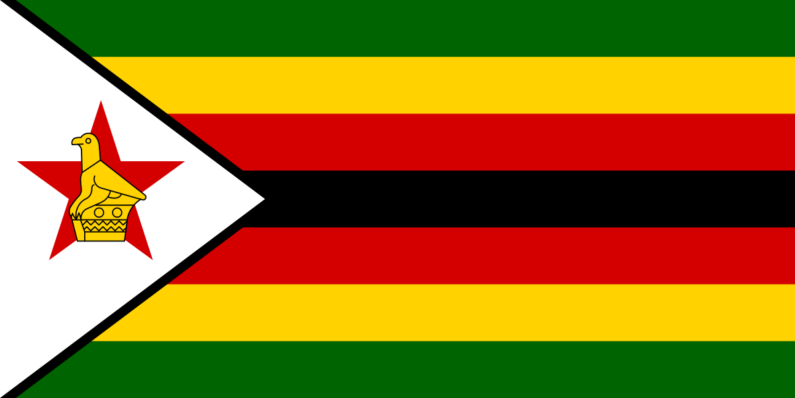Organised by
Africa Judges and Jurists Forum (AJJF)
at
Crown Plaza Hotel, Harare Zimbabwe, 28-29 April, 2016
Concluding Remarks to be referred to as The Monomotapa Initiative/Plan of Action
RECOGNISING that the Universal Declaration of Human Rights provides that everyone is entitled in full equality to a fair and public hearing by an independent and impartial tribunal, in the determination of rights and obligations and of any criminal charge.
CONSCIOUS that the Constitutive Act makes it an objective of the African Union to promote and protect human and peoples’ rights in accordance with the African Charter on Human and Peoples’ Rights and other relevant human rights instruments;
CONSCIOUS FURTHER that the Constitutive Act identifies it as a principle of the African Union the respect for democratic principles, human rights, the rule of law and good governance;
WHEREAS the Africa Charter on Human and Peoples Rights’, the Principles and Guidelines on the Right to a Fair Trial and Legal Assistance in Africa, the International Covenant on Civil and Political Rights guarantee and elaborate on the right to equality for all before the courts, and that in the determination of any criminal charge or of rights and obligations in a suit at law, everyone shall be entitled, without undue delay, to a fair and public hearing by a competent, independent and impartial tribunal established by law.
ENCOURAGED by the Grand Bay (Mauritius) Declaration and Plan of Action, 1999 which recognizes that the development of the rule of law, democracy and human rights calls for an independent, open, accessible and impartial judiciary, which can deliver justice promptly and at an affordable cost. To this end, such a system requires a body of professional and competent judges enjoying conducive conditions.
GUIDED by the global standards for the protection and promotion of judicial independence, including the Commonwealth (Latimer House) Principles on the Three Branches of Government November 2003, the Bangalore Principles of Judicial Conduct 2002, UN Basic Principles on the Independence of the Judiciary December 1985
HIGHLIGHTING the resolution “On the respect and strengthening of the independence of the judiciary” and “Role of Lawyers and Judges in the Integration of the Charter and the Enhancement of the Commission’s work in National and sub-Regional Systems” adopted by the African Commission on Human and Peoples’ Rights at its 19th Ordinary Session held from 26th March to 4th April 1996 at Ouagadougou, Burkina Faso;
ACKNOWLEDGING the important role played by the UN Special Rapporteur on the independence of judges and lawyers;
CONCERNED by the number of cases of judges that are being prosecuted and persecuted on the continent and the similarities in the cases emerging from the continent on the persecution of judges;
We the delegates sitting in Harare agree that, acting with like minded institutions we will:
- Motivate for the establishment of a legal/judicial fund to protect judicial officers in distress or are being persecuted in Africa;
- Motivated for the establishment of an AU special mechanism for the protection and promotion of judicial independence similar to what exists at the UN level;
- Support the development of AU Standards in the following areas key to independence of the judiciary such as:
(a) Minimum Standards for the remuneration of Judges;
(b) Composition and tenure of JSC;
(c) Selection, Appointment, tenure and removal of judges (looking particularly impeachment of judges) to this extent support the process that the DGRU, ICJ and the SACJF have started to culminate in the adoption of some standards at the next Annual Conference to be convened by the SACJF in 2017;
(d) the use of and access to social and other forms of the media.
- Create platforms for discussion with the other branches of government. In addition, have similar roundtables at a domestic level.
- Develop standards and minimum conditions for the appointment of magistrates as this is often a clear path to appointment as a judge.
- Advocate for the establishment of a pool of judges that will sit as observers on matters to do with the impeachment of judges (a rapid reaction unit for judges in distress);
- Create a direct line to feed into the Africa Judges and Jurists Forum and Southern African Chief Justices Forum to air concerns raised by judges across the region.
For more information:
Martin Okumu-Masiga, Secretary General of AJJF, email: okumu-masiga@africajurists.org , mobile: +256 753 954 308, Twitter: @mokumas
Dr. Justice Alfred Mavedzenge, Programs Director, email: justice-mavedzenge@africajurists.org , mobile: +27 79 388 9990, Twitter: @Dr_JAMavedzenge
Twitter @AfricanJurists, Website https://africajurists.org/ FB- Africa Judges and Jurists Forum.
Elizabeth Oriakhogba, Legal Advisor, AJJF, email: elizabeth.oriakhogba@africajurists.org
mobile: +234 813 128 8602, Twitter: @Leezy_O
Download Pdf Here

